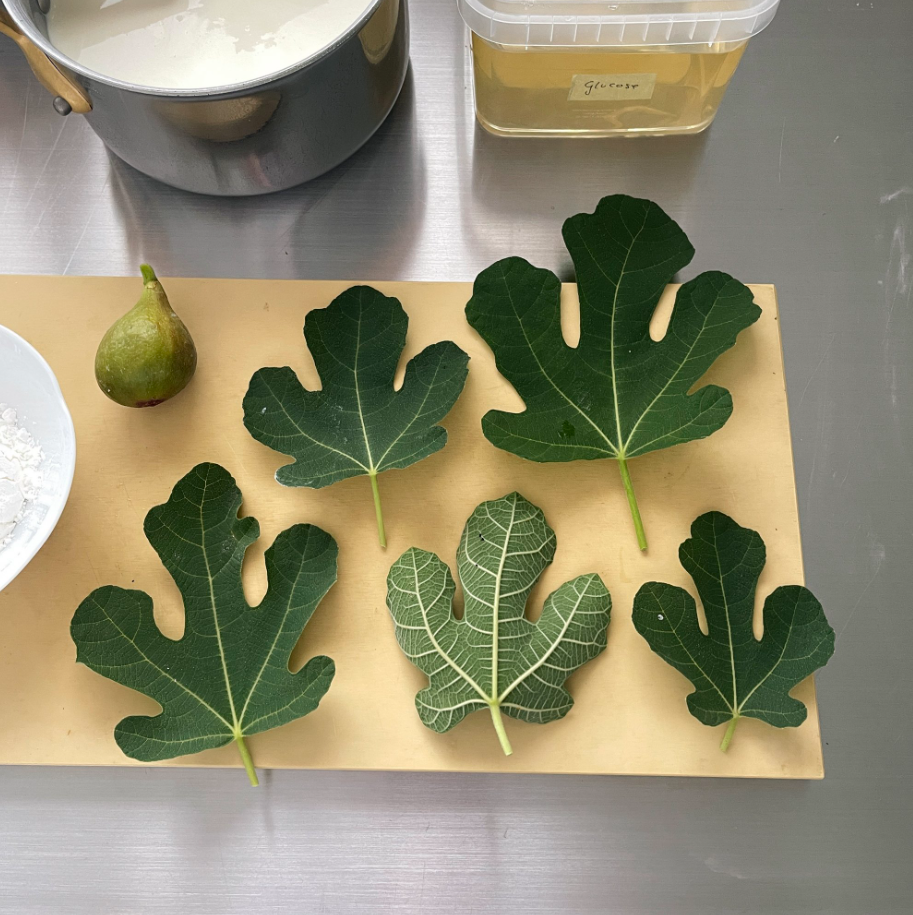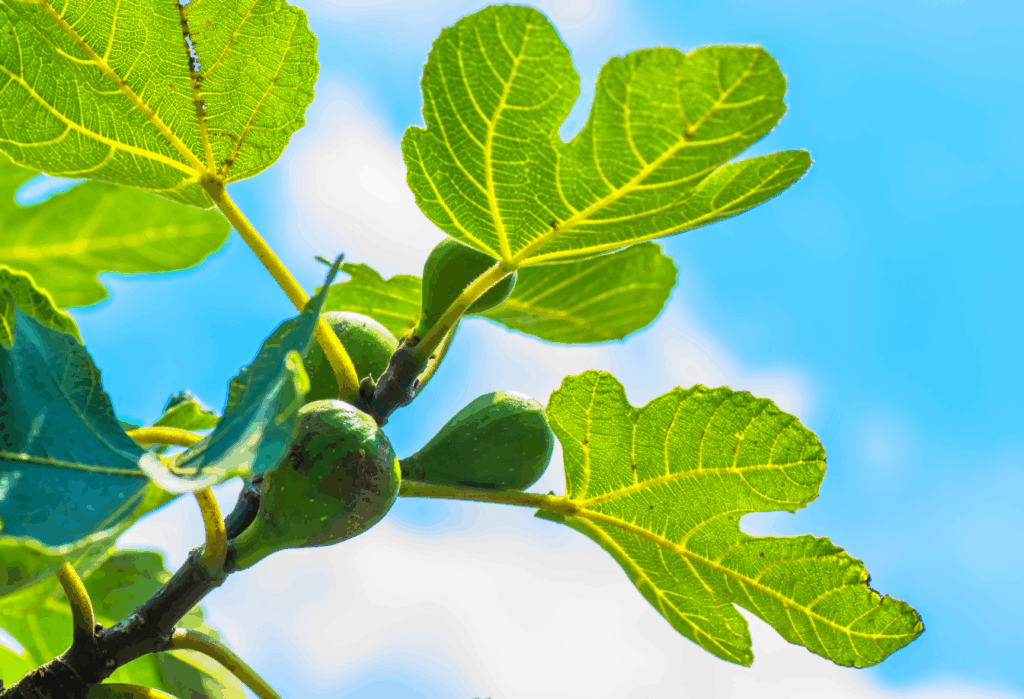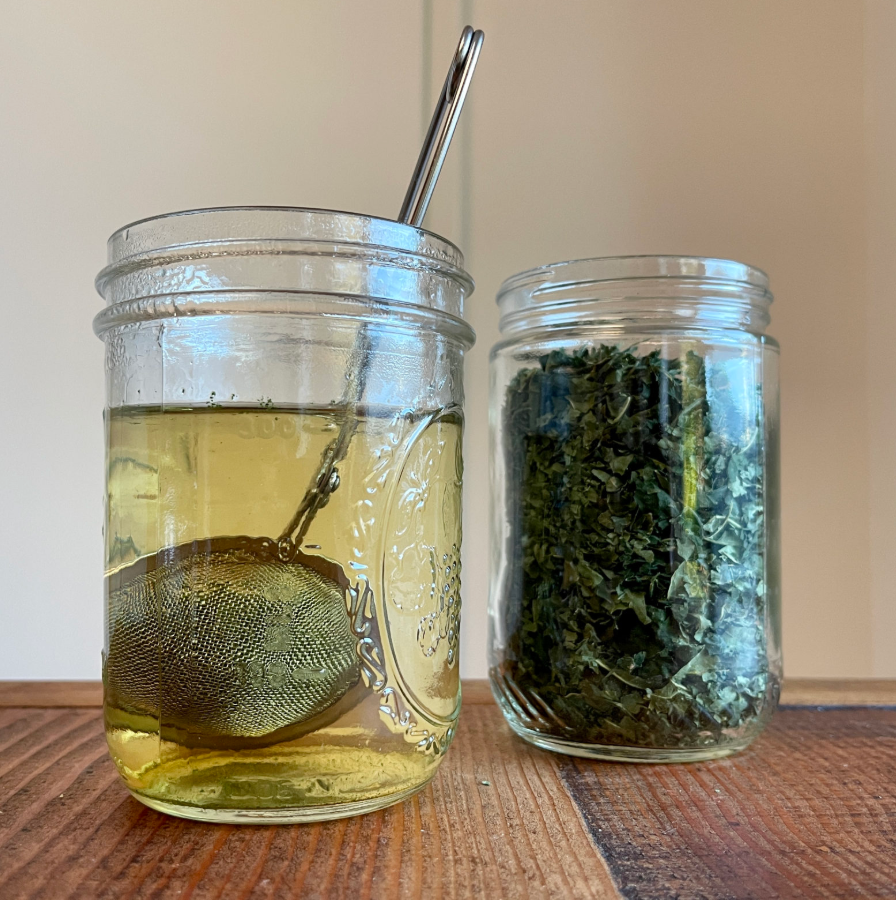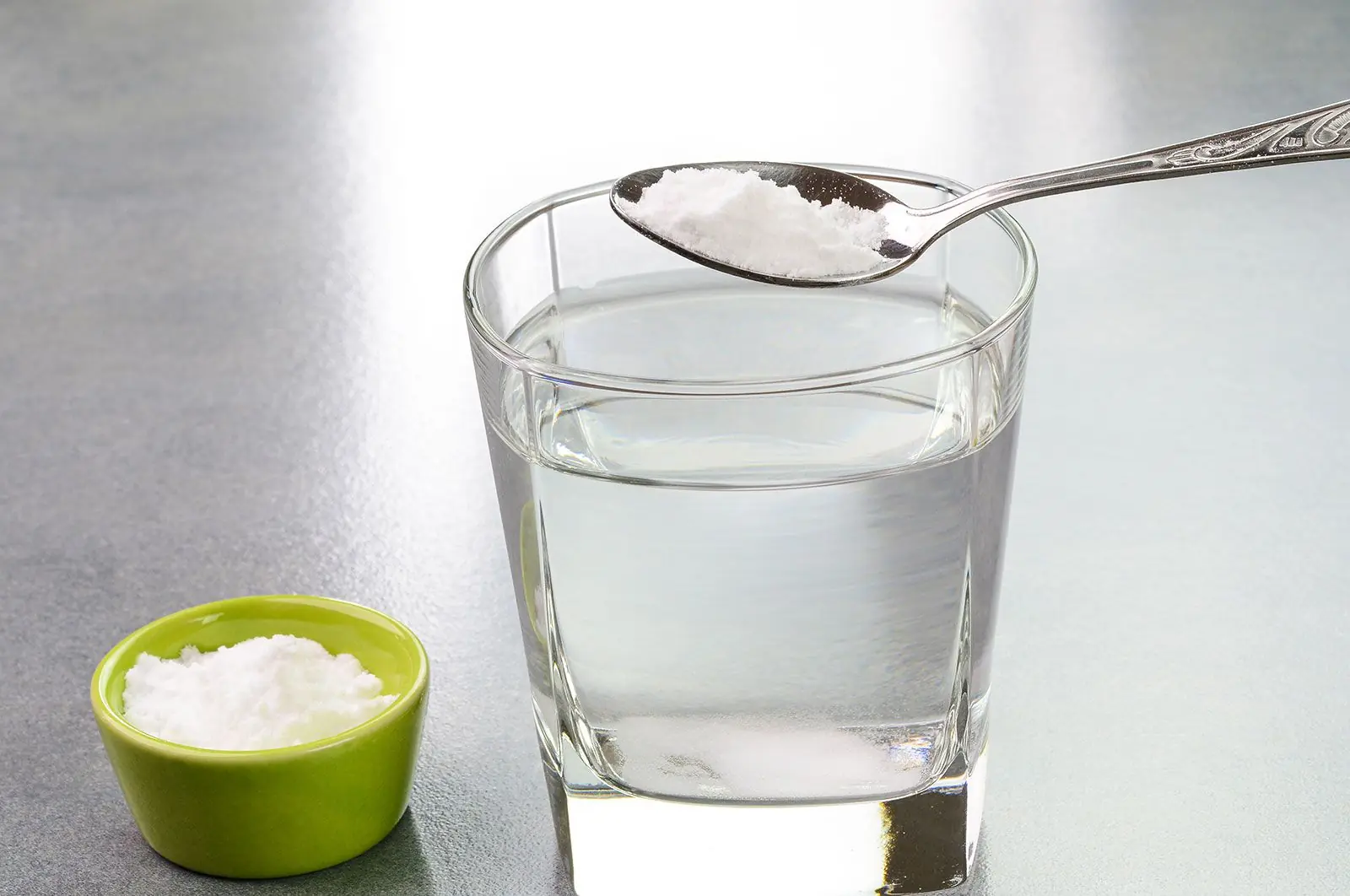
If You Have Fig Leaves, You Have Gold: Discover Their Hidden Health Benefits
Have you ever walked past a fig tree, admiring its lush green leaves without realizing the incredible health potential hidden in that foliage? While the sweet fruit of the fig tree often gets the spotlight, its leaves are a nutrient-rich powerhouse with a wide range of wellness benefits. From helping manage blood sugar levels to supporting heart health and digestive comfort, fig leaves are a traditional remedy that's finally getting the recognition it deserves.
Inexpensive, accessible, and rooted in centuries of herbal wisdom, fig leaves are an easy addition to the modern wellness toolkit—especially for health-conscious Americans looking for natural ways to feel their best. Let’s take a closer look at the science-backed benefits of fig leaves and how to safely incorporate them into your daily routine.
What Are Fig Leaves and Why Are They Valuable?
Fig leaves come from the Ficus carica tree, a plant celebrated not only for its delicious fruit but also for its large, distinctive leaves. These lobed leaves are edible and brimming with vitamins, minerals, fiber, and antioxidants—nutrients your body needs for daily function and disease prevention.
Key Nutritional Highlights:
-
Vitamins: A rich source of vitamins A, B1, B2, and C, which support immunity, energy metabolism, and skin health (Healthline).
-
Minerals: Contain calcium, potassium, iron, and magnesium—important for bones, nerves, and heart function.
-
Antioxidants: High in polyphenols and flavonoids that help fight oxidative stress and cellular damage (WebMD).
Used for centuries in African, Middle Eastern, and Asian traditional medicine, fig leaves were commonly brewed as tea or used topically for everything from skin irritation to digestive issues.
Modern interest in fig leaves is growing thanks to new studies and the rise of plant-based wellness. While some traditional claims still lack robust research, the emerging science is promising.
Supporting Blood Sugar Control Naturally

If you're living with diabetes or trying to stabilize your blood sugar, fig leaves might offer gentle, plant-based support. Compounds in the leaves have shown potential in improving insulin sensitivity and reducing glucose spikes, making them a smart addition to a blood sugar-friendly diet.
Benefits for Blood Sugar:
-
Insulin Sensitivity: A small clinical trial found that drinking fig leaf tea reduced insulin needs by 12% in people with type 1 diabetes (GoDigit).
-
Glycemic Balance: Fig leaf extract has a lower glycemic index, helping minimize sugar spikes after meals (Healthline, 2019).
-
Potassium Support: High potassium helps regulate how sugar is absorbed and utilized in the body (DrHealthBenefits).
🩺 Expert Tip: According to Harvard Health, foods rich in plant compounds and fiber, like fig leaves, can be helpful in managing blood sugar when part of a balanced diet. But they should never replace prescribed medication.
How to Use Fig Leaves for Blood Sugar:
-
Fig Leaf Tea: Simmer 2–3 dried fig leaves in 2 cups of water for 15 minutes. Strain and drink once daily.
-
Smoothie Add-In: Blend 1 tsp of fig leaf powder into a berry smoothie with Greek yogurt.
-
Track Changes: If you have diabetes, monitor your blood sugar when trying fig leaves to avoid unexpected drops.
Promoting Heart Health and Lowering Triglycerides
Heart disease remains the leading cause of death in the U.S., but lifestyle changes—including diet—can make a powerful difference. Fig leaves may contribute to cardiovascular wellness by reducing triglyceride levels, managing blood pressure, and fighting inflammation.
Heart-Supportive Properties:
-
Lower Triglycerides: Animal studies show fig leaves reduce triglyceride levels, which lowers heart disease risk (Phytotherapy Research).
-
Blood Pressure Control: High potassium and low sodium in fig leaves support healthy blood pressure (Plantshospital).
-
Anti-Inflammatory Effects: Antioxidants such as phenols and flavonoids help reduce artery-damaging inflammation (WebMD).
❤️ Add to Your Heart Routine:
-
Enjoy fig leaf tea with a pinch of black cumin seeds, known for heart benefits.
-
Pair with heart-healthy foods like oats, walnuts, avocado, and leafy greens.
-
Avoid highly processed foods to boost the effectiveness of natural remedies.
Supporting Gut Health and Digestion
If you struggle with bloating, gas, or constipation, fig leaves may help restore comfort and balance. Their rich fiber content and natural laxative properties make them a gentle digestive aid.
Digestive Benefits:
-
High Fiber Content: Fig leaves contain pectin, a soluble fiber that promotes regularity and feeds healthy gut bacteria (DrHealthBenefits).
-
Mild Laxative Effect: They can relieve constipation naturally but should be used in moderation (Homely Hens).
-
Colon Health: Fiber helps eliminate waste and may reduce the risk of colon-related issues (Plantshospital).
🌿 How to Use for Digestion:
-
Post-Meal Tea: Steep 2 dried fig leaves in hot water for 10 minutes; add honey if desired.
-
Creative Cooking: Wrap grilled fish or seasoned tofu in fresh fig leaves for a fiber-rich meal.
-
Moderate Use: Limit tea to 1–2 cups daily to prevent loose stools.
Fig Leaves for Skin and Inflammation Relief

Fig leaves have long been applied to the skin to soothe irritation, thanks to their anti-inflammatory and antioxidant compounds. They may be helpful for minor conditions like eczema, dermatitis, or rashes.
Skin Benefits:
-
Soothing Effect: Fig leaf tea may relieve mild eczema symptoms (PMC study).
-
Antioxidant Defense: Flavonoids help reduce skin inflammation (Healthline).
-
Topical Applications: Traditional use includes applying fig leaf decoction to burns or bites, but caution is advised.
⚠️ Safety Note: Fig sap can cause photosensitivity or skin rashes, so avoid sun exposure after topical use and always patch-test first.
🧴 Skin Care Tips:
-
Dab cooled fig leaf tea on affected skin using a clean cotton pad.
-
Drink tea to promote internal anti-inflammatory action.
-
Discontinue use at the first sign of irritation.
How to Use Fig Leaves Safely

Despite their benefits, fig leaves must be handled with care. Their sap can irritate skin, and compounds in the leaves may interact with medications.
Safe Usage Guidelines:
-
Harvest with Gloves: The milky sap can cause skin rashes or sun sensitivity (WebMD).
-
Start Slow: Begin with 1 small cup of tea daily to assess tolerance (Homely Hens).
-
Know Allergies: Avoid fig leaves if allergic to latex, mulberries, or weeping fig (RxList).
🔍 Consult Your Doctor:
Especially if you're pregnant, nursing, or taking medications like blood thinners or insulin. Natural remedies can interact with pharmaceuticals, as noted by Harvard Health.
🫙 Storage Tips:
-
Use young leaves—they’re more tender and flavorful.
-
Dry leaves in a 200°F oven for 20–30 minutes for year-round use (Zero-Waste Chef).
-
Store in an airtight jar in a cool, dark place.
Setting Realistic Expectations
Fig leaves can be a valuable part of a wellness plan—but they aren’t a miracle cure. Social media may exaggerate, but lasting health comes from consistent habits and realistic expectations.
What to Expect:
-
Timeline: Blood sugar or digestion benefits may appear after 4–8 weeks of regular use (Healthline).
-
Supportive Role: Fig leaves enhance a healthy lifestyle but don't replace medications or doctor’s advice.
-
Evidence Gaps: Some claims (like cancer prevention) need more research, especially human trials (GoDigit).
🧘♀️ Combine fig leaves with:
-
A balanced diet
-
Physical activity
-
Medical guidance for a truly holistic approach to health.
Conclusion: Discover the Hidden Power of Fig Leaves
If you have access to fig leaves, you have a natural, affordable, and versatile tool for better health. From regulating blood sugar to improving digestion, supporting your heart, and even soothing your skin, these nutrient-dense leaves offer a wide range of benefits when used thoughtfully.
Start simple—with a daily cup of fig leaf tea—and talk to your doctor about adding this ancient remedy to your wellness journey. With consistency and care, fig leaves can be a golden addition to your path toward better health.
Disclaimer: This article is for educational purposes only. It does not substitute for professional medical advice, diagnosis, or treatment. Always consult a healthcare provider before making changes to your health routine.
News in the same category


Improve Your Oral Health Naturally with Garlic

How to Use Castor Plant Leaves to Treat 12 Common Health Problems Naturally 🌿

Thyroid Issues Are Rising—Here's a Natural Drink That Could Help

Why Cloves, Ginger, and a Lipton Tea Bag Might Be the Golden Trio Your Body Needs

🍇 Seniors: Eat These 14 Fruits That Help DESTROY Blood Clots Naturally (They Don’t Want You to Know This!)

🌿 Cleanse Your Kidneys, Liver & Lungs Naturally – The Celery Detox You Need!

Mix Bananas, Garlic, and Dates – You Will Thank Me Later! 🍌🧄🌴

Put Sage in Your Sock and See What Happens in Just a Few Hours – Ancient Remedy with Modern Benefits

Discover the Revitalizing Powers of Parsley: Your Natural Solution for Radiant Skin

How to Naturally Remove Warts and Skin Tags at Home – Safe and Effective Tips

Simple Drinks That Could Support Kidney Health After 60

Kidney Danger! 10 Signs of Failing Kidneys & 8 Natural Detox Remedies You Shouldn’t Ignore

Breathe Easy Again: A Natural Way to Soothe Your Lungs with Onion and Honey

Unleash the Hidden Power of Papaya Seeds: A Tiny Superfood for Big Health Gains

Unlock Radiant Skin Naturally: The Powerful Duo of Vaseline and Tomato for Beauty

If You're Experiencing PAIN And NUMBNESS In Your Legs, STOP EATING These Foods | Vitality Solutions

Coleus Amboinicus: The Forgotten Herb Every Home Should Know About

The Hidden Power of Lamb’s Quarters: Nature’s Humble Wonder
News Post

11 Powerful Reasons Your Whole Family Should Drink Okra Water Every Day

Improve Your Oral Health Naturally with Garlic

How to Use Castor Plant Leaves to Treat 12 Common Health Problems Naturally 🌿

Thyroid Issues Are Rising—Here's a Natural Drink That Could Help

Why Cloves, Ginger, and a Lipton Tea Bag Might Be the Golden Trio Your Body Needs

🍇 Seniors: Eat These 14 Fruits That Help DESTROY Blood Clots Naturally (They Don’t Want You to Know This!)

🌿 Cleanse Your Kidneys, Liver & Lungs Naturally – The Celery Detox You Need!

Mix Bananas, Garlic, and Dates – You Will Thank Me Later! 🍌🧄🌴

Put Sage in Your Sock and See What Happens in Just a Few Hours – Ancient Remedy with Modern Benefits

Abdominal Pain and Sudden Weight Loss: Warning Signs of Metastatic Pancreatic Cancer You Can’t Ignore

Skipping These Foods? You Might Be Missing a 22% Lower Risk of Pancreatic Cancer

5 Early Signs of Lung Cancer You Shouldn’t Ignore – Metastasis Could Be Life-Threatening

Get Rid of Throat Mucus Faster: Science-Backed Home Treatments

Science-Backed Strategies: How to Lose Lower Belly Fat for a Healthier You

The Amazing Health Benefits of Drinking Baking Soda Water

Discover the Revitalizing Powers of Parsley: Your Natural Solution for Radiant Skin

How to Naturally Remove Warts and Skin Tags at Home – Safe and Effective Tips

Simple Drinks That Could Support Kidney Health After 60

Kidney Danger! 10 Signs of Failing Kidneys & 8 Natural Detox Remedies You Shouldn’t Ignore
